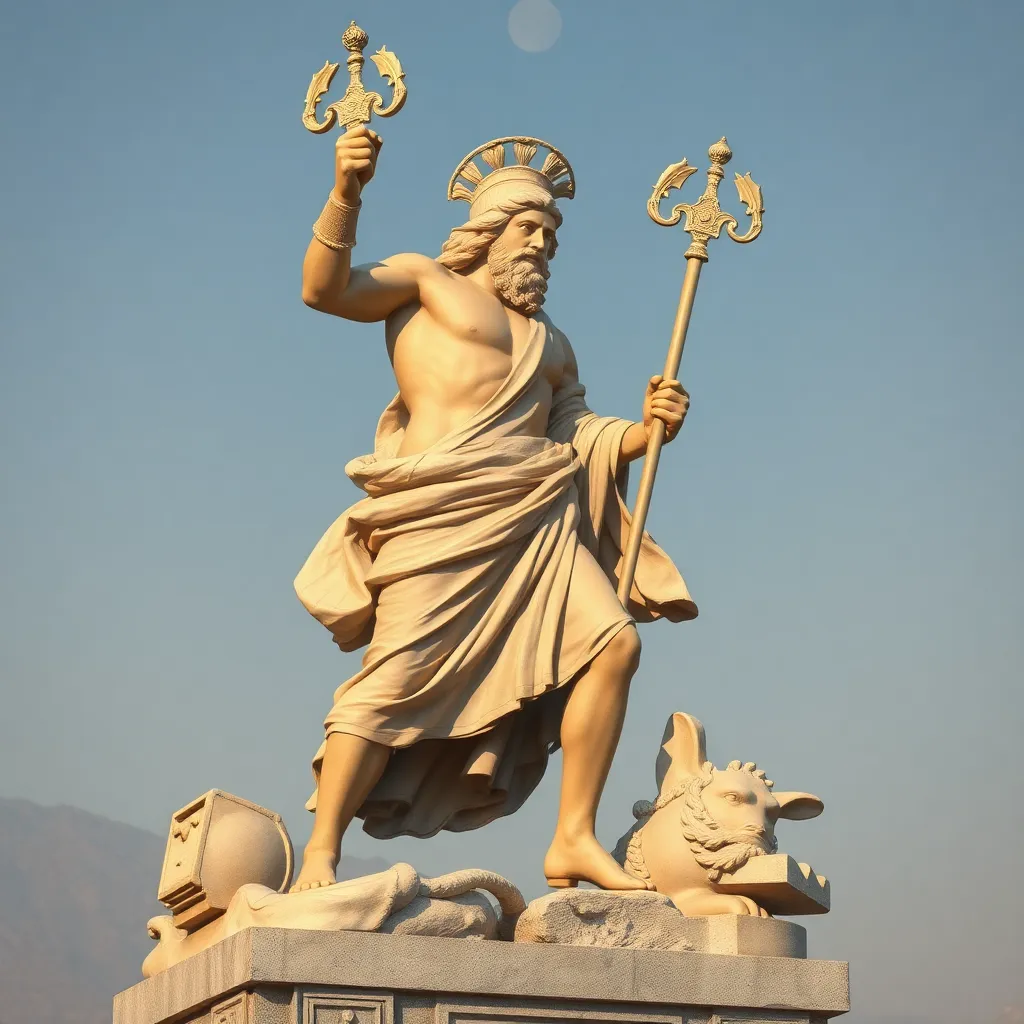Hermes: The God of Trade, Thieves, and Travel
I. Introduction
In the rich tapestry of Greek mythology, Hermes stands out as one of the most dynamic and multifaceted deities. Known primarily as the messenger of the gods, he also embodies many other roles, including that of the god of trade, thieves, and travelers. His significance extends beyond mere mythology; Hermes represents essential aspects of daily life, commerce, and the human experience. This article aims to explore the myriad dimensions of Hermes, shedding light on his origins, attributes, and the lasting impact he has had on both ancient and modern society.
II. Origins and Birth of Hermes
Hermes was born to Zeus, the king of the gods, and Maia, one of the Pleiades. His birth is shrouded in intrigue, occurring in a cave on Mount Cyllene in Arcadia. According to myth, he was born at dawn, and even as an infant, he exhibited remarkable traits of intelligence and cunning.
One of the most famous stories of his early adventures involves him stealing Apollo’s cattle shortly after his birth. Hermes cleverly fashioned the first lyre from a tortoise shell and later offered it to Apollo in exchange for the cattle. This act not only established Hermes as a trickster but also laid the foundation for his role as a deity associated with trade.
The symbolism of Hermes’ origins reflects the duality of his character: born of divine lineage yet embodying the spirit of cleverness and adaptability, he represents the intersection of the mortal and the divine.
III. Attributes and Symbols of Hermes
Hermes is often depicted with several key symbols that encapsulate his diverse roles:
- Caduceus: A staff entwined with two serpents, representing commerce and negotiation.
- Winged Sandals: Allowing him to travel swiftly between realms, symbolizing speed and mobility.
- Petasos: A wide-brimmed hat that signifies his role as a protector of travelers.
In art and literature, Hermes is frequently portrayed as a youthful figure, embodying agility and intelligence. His dual nature is represented through his roles as both a guide to the living and the dead, showcasing his significance across various aspects of life and death.
IV. Hermes as the God of Trade
As the god of trade, Hermes plays a crucial role in commerce and economic exchange. His influence is evident in the practices of merchants and traders, who often invoked his name for success in their transactions.
Some key aspects of Hermes’ role in trade include:
- Patronage of merchants, often depicted as guiding them in their dealings.
- Facilitation of negotiations, embodying the spirit of fair trade.
- Influence on modern concepts of trade, negotiation, and the importance of communication in business.
Hermes’ attributes of cunning and adaptiveness resonate with the qualities necessary for success in trade, making him a revered figure among those who engage in economic activities.
V. Hermes as the God of Thieves
Known for his cunning and trickery, Hermes is also recognized as the god of thieves. This aspect of his character is celebrated in many myths where he exhibits cleverness and resourcefulness.
Key characteristics associated with Hermes in the context of theft include:
- His intelligence and ability to outsmart others.
- His role in myths involving deception and trickery, emphasizing the cleverness of thieves.
- His cultural perception as a protector of those who engage in illicit activities, reflecting the complexities of morality.
Myths involving Hermes often involve him outsmarting other gods or humans, highlighting the fine line between cleverness and deceit, and shaping cultural perceptions of thieves throughout history.
VI. Hermes as the God of Travel
Hermes is revered as the protector of travelers and wayfarers. His role in guiding souls to the underworld further cements his significance in the realm of travel.
Important aspects of Hermes’ role as the god of travel include:
- Protection of travelers, ensuring safe passage on their journeys.
- Guiding souls to the afterlife, symbolizing his connection to both the living and the dead.
- His importance in ancient Greek society, where travel was often fraught with danger, making his blessings essential.
In a world where the unknown loomed large, Hermes provided comfort and assurance to those embarking on journeys, embodying the hopes and fears of travelers in ancient Greece.
VII. Worship and Cult of Hermes
The worship of Hermes was widespread in ancient Greece, with various practices and rituals dedicated to him. Temples and sacred sites dedicated to Hermes often served as places for merchants to seek his favor and protection.
Key aspects of the worship of Hermes include:
- Historical practices that involved offerings and prayers for success in trade and safe travels.
- Temples located at crossroads and ports, emphasizing his role as a guide and protector.
- His influence on Roman mythology, where he was identified with Mercury, further expanding his worship and significance.
Hermes’ worship reflects the values of ancient Greek society, highlighting the importance of trade, travel, and the cleverness associated with navigating life’s challenges.
VIII. Conclusion
In summary, Hermes embodies a multifaceted role in Greek mythology, representing trade, trickery, and travel. His lasting legacy continues to resonate in contemporary culture, symbolizing the importance of communication, commerce, and adventure.
Hermes reminds us of the complexities of human nature and societal interactions, reflecting the essential roles of trade, travel, and cunning in our lives. As a deity who straddles the realms of the divine and the mortal, Hermes remains a powerful symbol of adaptability and intellect, forever relevant in a world that values connection and commerce.




